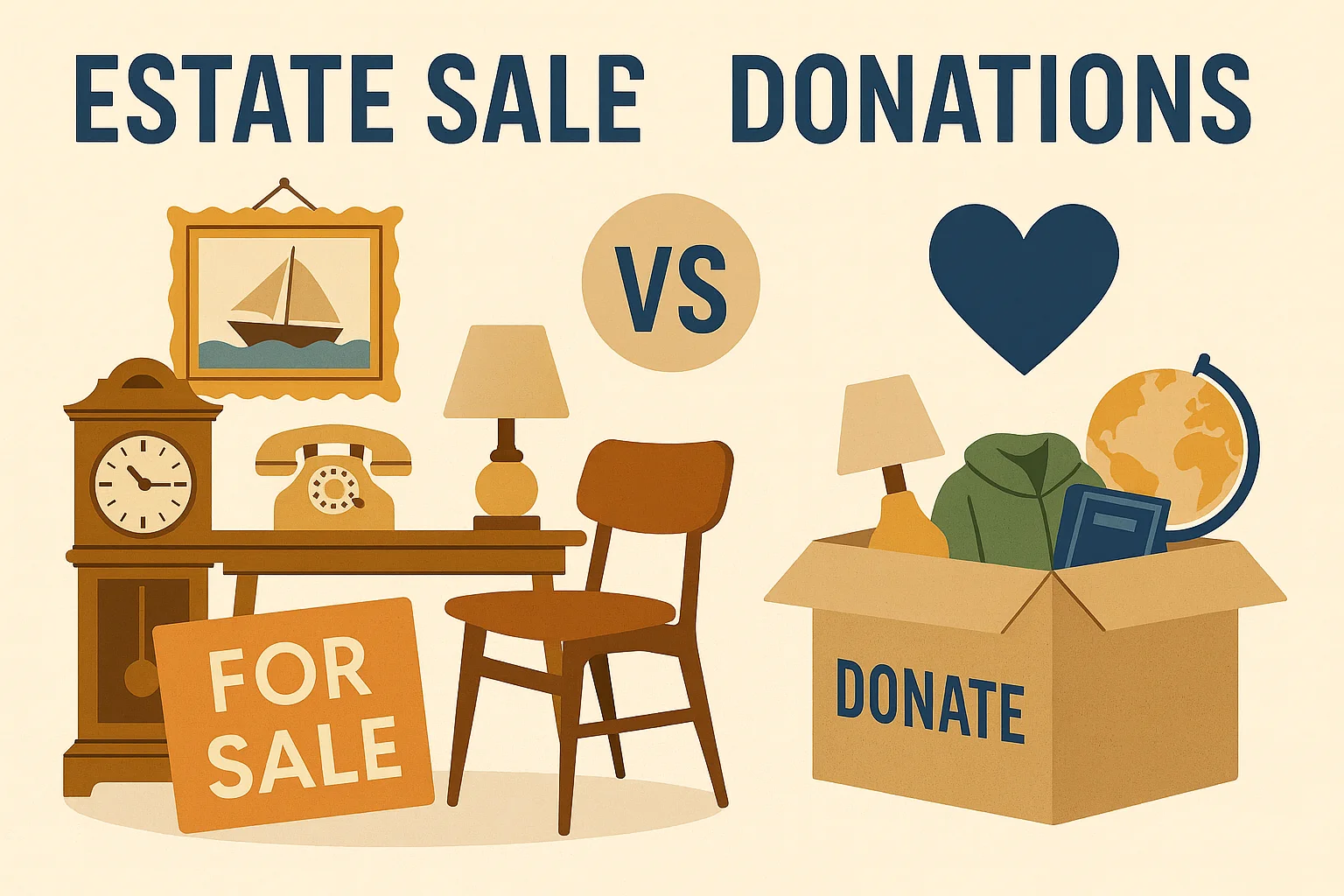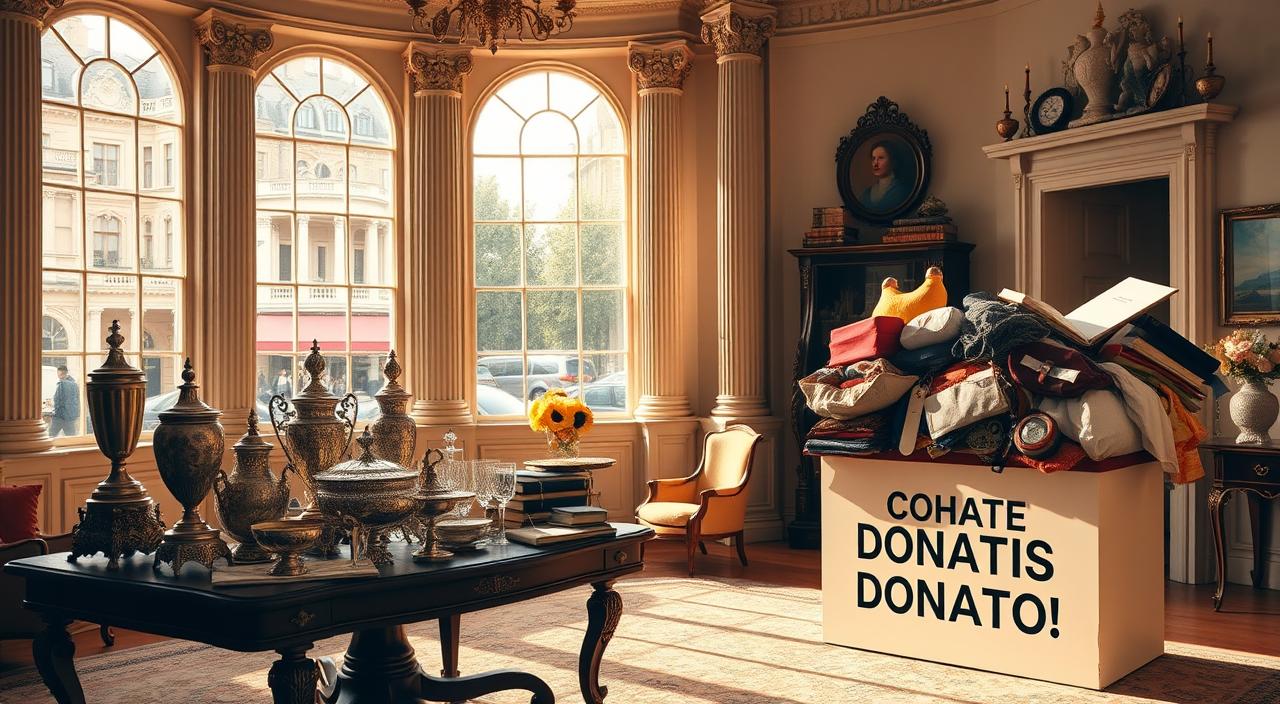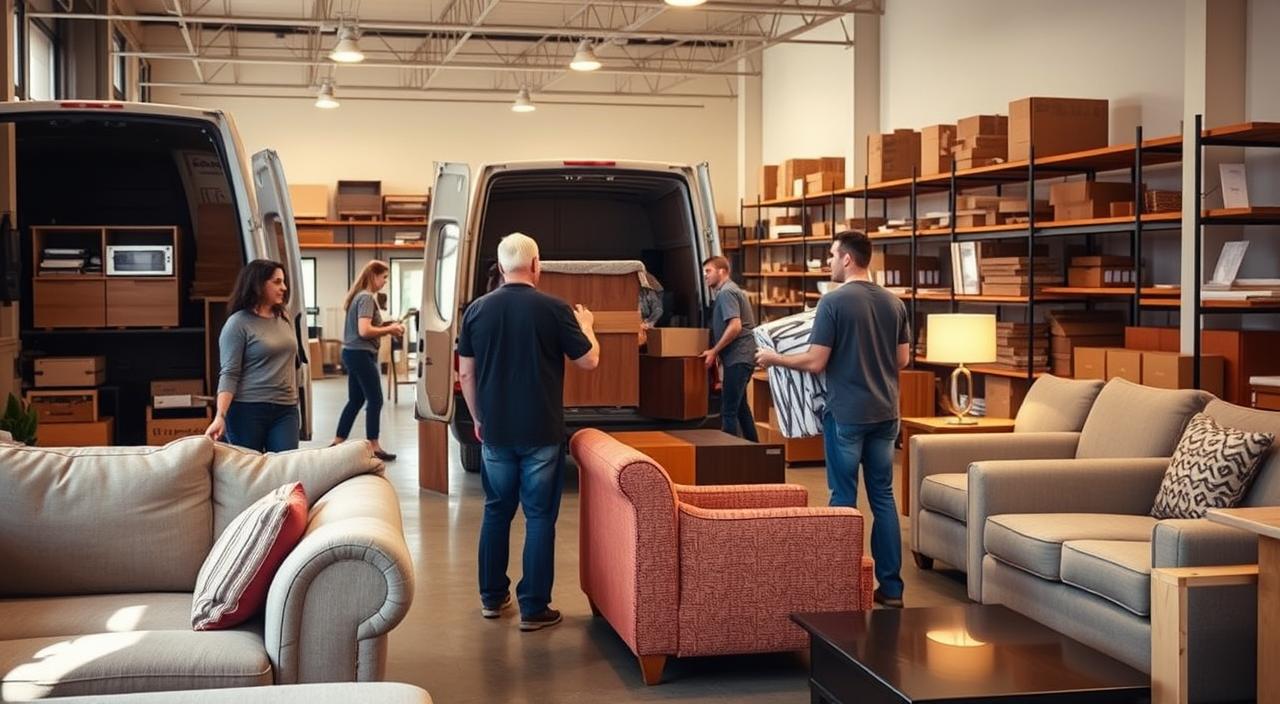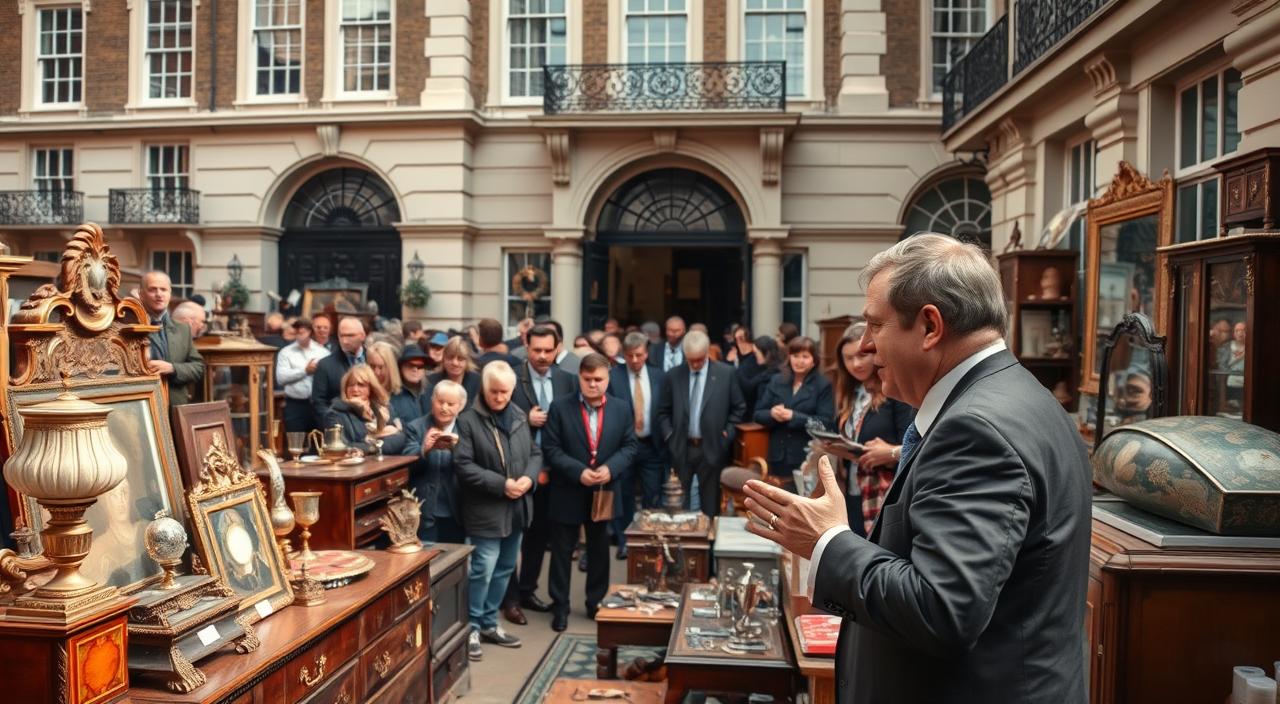
When downsizing or clearing out a home, the question of estate sales vs donations often arises. Should you sell valuable possessions for profit, or pass them on to charity to support local causes? In London, both routes are viable, each offering unique benefits depending on the type of items, your priorities, and the time available.

For Londoners, the choice is particularly relevant. The city offers a thriving resale market for antiques and collectibles, while also hosting hundreds of active charities ready to redistribute household goods. Deciding between estate sales and donations means balancing financial gain with social impact.
This guide explores both options in depth, helping you determine the most suitable path for your circumstances.
Key Takeaways
- Assess item value and condition before choosing between selling or donating.
- Estate sales vs donations is a balance of profit versus community benefit.
- Resale brings financial return, donations bring social impact and tax relief.
- Location in London affects access to buyers and charities.
- Personal priorities shape the right decision.
Estate Sales vs Donations: Understanding the Difference
Clearing unwanted belongings can feel overwhelming. While estate sales vs donations share the goal of removing items, their approaches differ. One prioritises financial gain, while the other focuses on social good.
- Estate sales focus on financial return, relying on professional valuation, marketing, and selling.
- Donations emphasise community benefit, channeling usable items to families in need and funding local projects.
Both choices contribute to sustainability by extending the lifecycle of furniture, household goods, and collectibles.
Estate Sales Explained
What Are Estate Sales?
Estate sales are structured events or managed services where the contents of a home are sold, often after downsizing, relocation, or bereavement. Professionals handle valuation, cataloguing, marketing, and transactions, making the process seamless for the homeowner.
How Professional Resale Services Work
Licensed companies assess each item’s condition and market demand. Once priced, items are marketed through targeted platforms and sometimes live events. Buyers may include collectors, interior designers, and the general public.
Staff typically handle:
- Advertising and promotion.
- On-site viewings and negotiations.
- Payment processing and security.
Fees usually range from 25–50% of sale proceeds.
What Items Sell Well at Estate Sales?
Certain possessions attract buyers more consistently:
- Antiques, vintage furniture, and period décor.
- Signed artwork and limited-edition prints.
- High-end electronics in working order.
- Collectible jewellery and watches.
- Modern premium brand furniture and appliances.
Location affects success. Central London sales often generate stronger attendance but may also face competition in saturated markets.
The Donation Route
Why Choose Donations?
For many, the thought of their furniture or goods helping others outweighs potential profits. Donating also reduces the stress of selling, since charities arrange free collection for suitable items.
How to Donate Furniture in London

Most national and local charities provide online booking for collection. The process is simple:
- Visit the charity’s donation page and enter your postcode.
- List the items you want to donate.
- Receive confirmation and collection date (usually within 5 working days).
- Ensure items meet safety and quality requirements.
👉 Example: The British Heart Foundation furniture collection service operates across Greater London.
Donation Requirements
Charities are strict about condition and compliance:
- Upholstered furniture must have fire-safety labels.
- No tears, stains, or strong odours.
- Electrical items must function and be complete.
- Fragile furniture should be structurally sound.
If items do not meet standards, charities reserve the right to refuse them.
Estate Sales vs Donations: Benefits and Drawbacks
The table below compares both approaches side by side:
| Factor | Estate Sales | Donations |
|---|---|---|
| Financial Return | High potential, especially for antiques | No income, but possible tax relief |
| Time Required | Weeks of preparation and sale days | Minimal—collection scheduled online |
| Social Impact | Limited to buyers | Supports charities & families |
| Item Types | Collectibles, antiques, premium goods | Everyday furniture & household goods |
| Cost | 25–50% service fees | Free collection |
Step-by-Step: Estate Sale Process

- Consultation & Valuation – Professionals inspect items for value and rarity.
- Cataloguing – Detailed listings are created, often with photography.
- Promotion – Advertising across online platforms and local networks.
- Sale Day – Buyers attend in person or bid online.
- Payment & Fees – The company handles proceeds distribution, minus commission.
This hands-off process appeals to those prioritising efficiency.
Step-by-Step: Donation Process
| Step | Action | Notes |
|---|---|---|
| 1 | Confirm charity coverage by postcode | Services vary across London boroughs |
| 2 | Fill in donation form | List all items, sizes, and quantities |
| 3 | Schedule pickup | Usually within 5 working days |
| 4 | Prepare items | Clean, disassemble, and check labels |
| 5 | Collection | Free service with optional small item add-ons |
This system offers a stress-free way to clear unwanted belongings while supporting community initiatives.
Preparing Your Items: Best Practices
For Estate Sales
- Clean and polish items to maximise appeal.
- Keep receipts, certificates, or provenance papers for antiques.
- Allow professionals space to stage furniture for display.
For Donations
- Wipe down surfaces and vacuum upholstered furniture.
- Test electronics before collection.
- Disassemble large pieces to ease transport.
- Photograph items for your records.
Making the Right Choice
Ultimately, the decision comes down to your priorities:
- Choose estate sales if:
- You have antiques, collectibles, or high-value modern goods.
- You want to recover costs from furniture or décor.
- You can dedicate time to preparation and sale days.
- Choose donations if:
- You want a quick, stress-free solution.
- Your items are usable but not particularly valuable.
- You prefer to support local charities and reduce waste.
Sustainability and Environmental Impact
Both estate sales and donations extend the lifecycle of belongings. Instead of adding to landfill, items are reused and appreciated by new owners. This supports London’s 2025 Waste and Recycling regulations, which encourage reuse before disposal.
For more guidance on eco-friendly clearance, see House Clearance in London.
Conclusion
Clearing unwanted possessions requires balancing financial return with community impact. Estate sales are ideal for valuable antiques or collectibles, while donations provide quick, meaningful redistribution of quality items.
With preparation, either choice can bring positive outcomes—financial recovery, support for good causes, or simply peace of mind. By extending the lifecycle of household goods, both routes also contribute to a more sustainable London.
Whichever option you choose, proper planning ensures your belongings find a meaningful new home.

 CALL NOW
CALL NOW